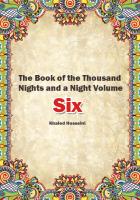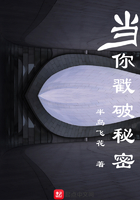In police circles the night had been quiet, the cells in the yard were empty, the telephone at his elbow had remained silent, and Standish, alone in the station-house, had employed himself in cramming "Moss's Manual for Subalterns." He found it a fascinating exercise. The hope that soon he might himself be a subaltern always burned brightly, and to be prepared seemed to make the coming of that day more certain. It was ten o'clock and Las Palmas lay sunk in slumber, and after the down train which was now due had passed, there was nothing likely to disturb her slumber until at sunrise the great army of dirt-diggers with shrieks of whistles, with roars of dynamite, with the rumbling of dirt-trains and steam-shovels, again sprang to the attack. Down the hill, a hundred yards below Standish, the night train halted at the station, with creakings and groanings continued toward Colon, and again Las Palmas returned to sleep.
And, then, quickly and viciously, like the crack of a mule-whip, came the reports of a pistol; and once more the hot and dripping silence.
On post at the railroad-station, whence the shots came, was Meehan, one of the Zone police, an ex-sergeant of marines. On top of the hill, outside the infantry barracks, was another policeman, Bullard, once a cowboy.
Standish ran to the veranda and heard the pebbles scattering as Bullard leaped down the hill, and when, in the light from the open door, he passed, the lieutenant shouted at him to find Meehan and report back. Then the desk telephone rang, and Standish returned to his chair.
"This is Meehan," said a voice. "Those shots just now were fired by Major Aintree. He came down on the night train and jumped off after the train was pulling out and stumbled into a negro, and fell. He's been drinking and he swore the nigger pushed him; and the man called Aintree a liar. Aintree pulled his gun and the nigger ran. Aintree fired twice; then I got to him and knocked the gun out of his hand with my nightstick."There was a pause. Until he was sure his voice would be steady and official, the boy lieutenant did not speak.
"Did he hit the negro?" he asked.
"I don't know," Meehan answered. "The man jumped for the darkest spot he could find." The voice of Meehan lost its professional calm and became personal and aggrieved.
"Aintree's on his way to see you now, lieutenant. He's going to report me.""For what?"
The voice over the telephone rose indignantly.
"For knocking the gun out of his hand. He says it's an assault.
He's going to break me!"
Standish made no comment.
"Report here," he ordered.
He heard Bullard hurrying up the hill and met him at the foot of the steps.
"There's a nigger," began Bullard, "lying under some bushes--""Hush!" commanded Standish.
From the path below came the sound of footsteps approaching unsteadily, and the voice of a man swearing and muttering to himself. Standish pulled the ex-cowboy into the shadow of the darkness and spoke in eager whispers.
"You understand," he concluded, "you will not report until you see me pick up a cigar from the desk and light it. You will wait out here in the darkness. When you see me light the cigar, you will come in and report."The cowboy policeman nodded, but without enthusiasm. "Iunderstand, lieutenant," he said, "but," he shook his head doubtfully, "it sizes up to me like what those police up in New York call a 'frame-up.'"Standish exclaimed impatiently.
"It's not my frame-up!" he said. "The man's framed himself up.
All I'm going to do is to nail him to the wall!"Standish had only time to return to his desk when Aintree stumbled up the path and into the station-house. He was "fighting drunk,"ugly, offensive, all but incoherent with anger.
"You in charge?" he demanded. He did not wait for an answer.
"I've been 'saulted!" he shouted. "'Saulted by one of your damned policemen. He struck me--struck me when I was protecting myself.
He had a nigger with him. First the nigger tripped me; then, when I tried to protect myself, this thug of yours hits me, clubs me, you unnerstan', clubs me! I want him--"He was interrupted by the entrance of Meehan, who moved into the light from the lamps and saluted his lieutenant.
"That's the man!" roared Aintree. The sight of Meehan whipped him into greater fury.
"I want that man broke. I want to see you strip his shield off him--now, you unnerstan', now--for 'saulting me, for 'saulting an officer in the United States army. And, if you don't," he threw himself into a position of the prize-ring, "I'll beat him up and you, too." Through want of breath, he stopped, and panted. Again his voice broke forth hysterically. "I'm not afraid of your damned night-sticks," he taunted. "I got five hundred men on top this hill, all I've got to do is to say the word, and they'll rough-house this place and throw it into the cut--and you with it."Standish rose to his feet, and across the desk looked steadily at Aintree. To Aintree the steadiness of his eyes and the quietness of his voice were an added aggravation.
"Suppose you did," said Standish, "that would not save you.""From what?" roared Aintree. "Think I'm afraid of your night-sticks?"
"From arrest!"
"Arrest me!" yelled Aintree. "Do you know who's talking to you?
Do you know who I am? I'm Major Aintree, damn you, commanding the infantry. An' I'm here to charge that thug--""You are here because you are under arrest," said Standish. "You are arrested for threatening the police, drunkenness, and assaulting a citizen with intent to kill--" The voice of the young man turned shrill and rasping. "And if the man should die--"Aintree burst into a bellow of mocking laughter.
Standish struck the desk with his open palm.
"Silence!" he commanded.













